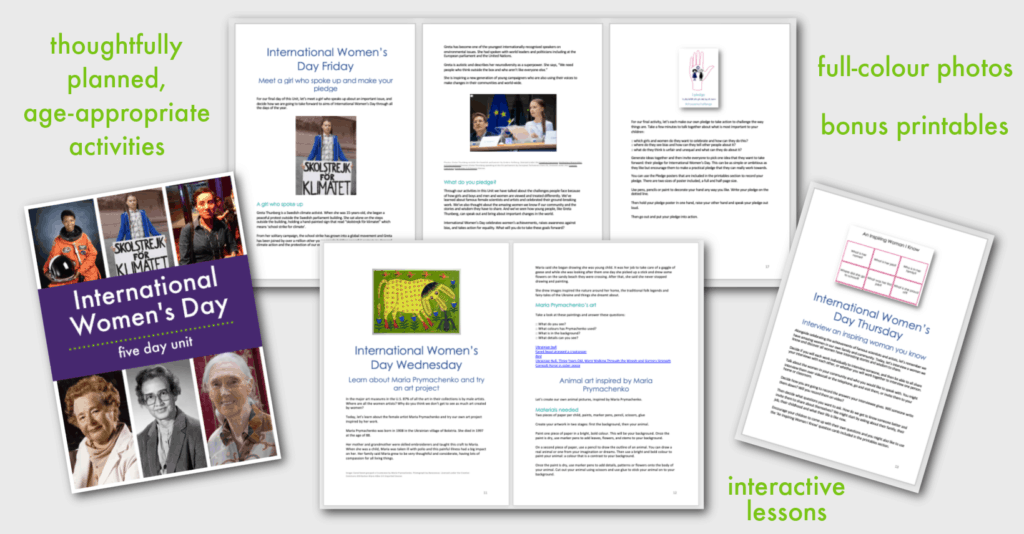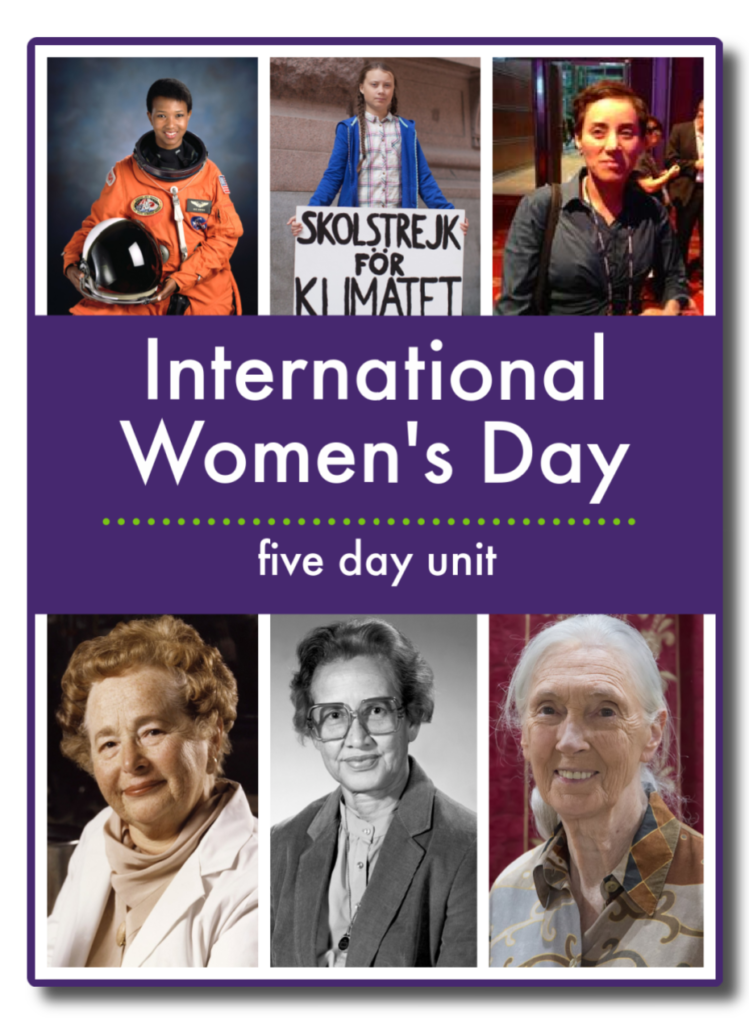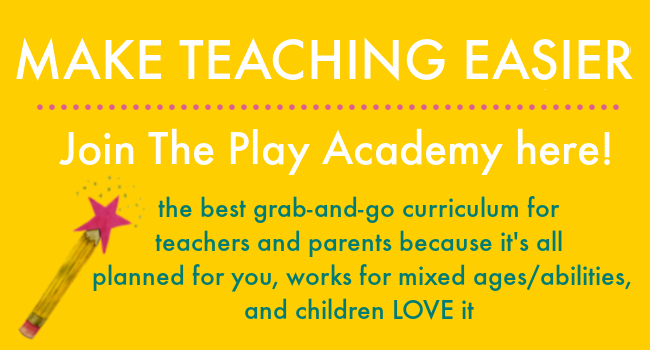Use this lesson, part of our International Women’s Day Unit, to talk about gender stereotypes with your children and get them thinking about bias and fairness.
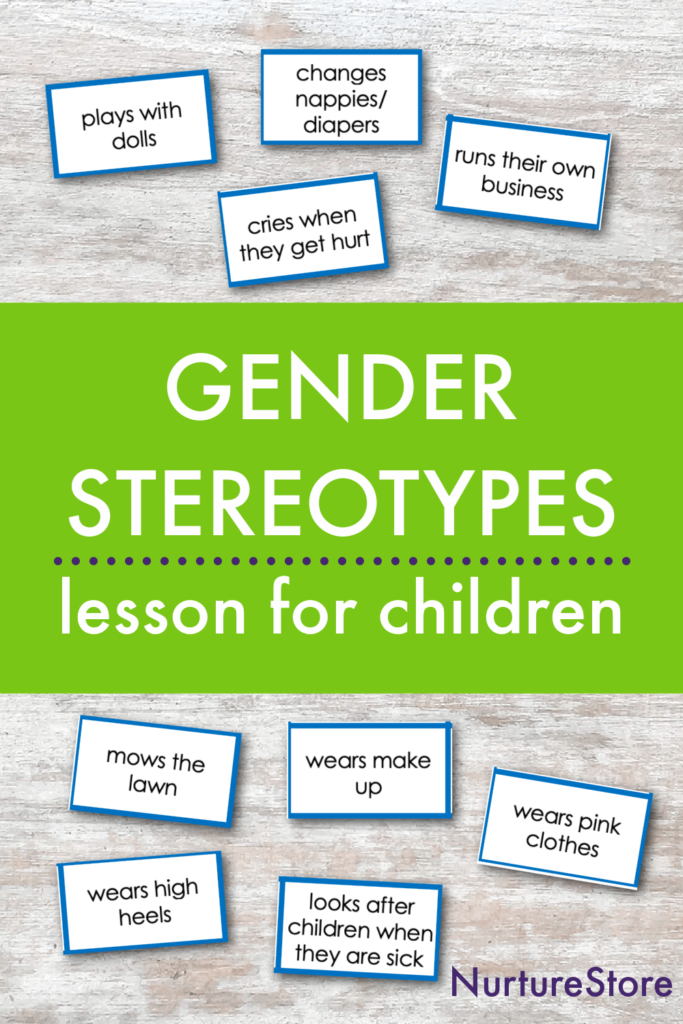
Simple gender lesson for children
International Women’s Day has taken place for over one hundred years and is observed on 8th March. The day celebrates women’s achievements, raises awareness against bias, and takes action for equality.
In our International Women’s Day unit, we’ll do all three. We’ll talk about girls and boys: the great things about them and the challenges they face. We’ll learn about famous female scientists, artists and activists, and inspiring women in our own community. We’ll talk about how we can take action about the things that are important to us and finish the unit by making a pledge to keep taking forward the aims of International Women’s Day all year round.
While this Unit talks about the main groups of girls and boys, it is important to note that some people – perhaps including your children – aren’t girls or boys, and some people are both. Everyone faces gender stereotypes. International Women’s Day is an event everyone can participate in.
International Men’s Day is observed on 19th November.
Intersex Awareness Day is observed on 26th October.
International Transgender Day of Visibility is observed on 31st March.
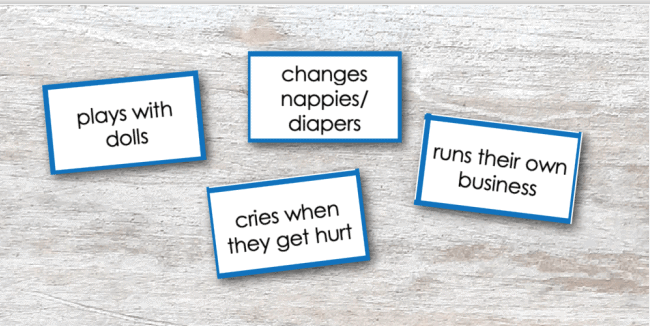
Talking about gender stereotypes
Let’s start the first lesson of our International Women’s Day unit with conversation. These question prompts allow us to:
:: talk about gender bias in a child-friendly way
:: hear what our children already know and what opinions they have
:: hear what other people think and consider their opinions
:: challenge our thinking and expand our awareness of issues people face
How to facilitate a great discussion
As you begin a conversation, it is a good idea to agree ground rules with your children so you can have an interesting and kind discussion. Perhaps you’ll agree that:
:: everyone who wants to can have a turn to speak
:: we will all listen when someone else is speaking
:: we are free to share our own opinions but we will always be kind and respectful to everyone else in what we say
:: it’s OK to change your mind
Your children will have their own experiences, reflecting their own family make-up and their family culture, which form their opinions and assumptions. Let’s acknowledge all of this, recognise difference, and leave space for new ideas too.
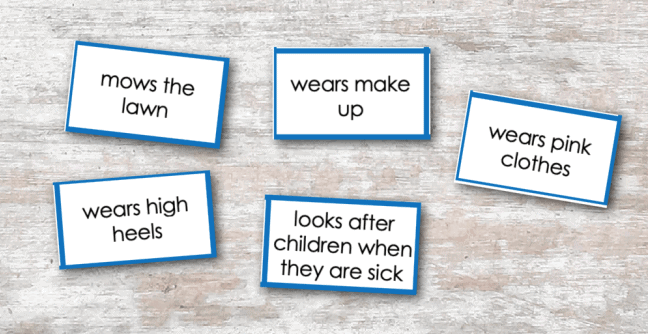
Are girls and boys different?
The first set of questions you can ask your children are:
Are girls and boys different?
What is good about being a girl / boy?
What is hard about being a girl/boy?
You can capture everyone’s answers on a piece of paper or white board. You might want to separate out what girls think about girls / boys think about boys, and what girls think about boys / boys think about girls.
To expand on ideas your children share you might ask “What makes you say that?’ but, at this stage, don’t challenge their assumptions too much, simply gather a snapshot of what they all think.
Who are our movie stars?
Next, ask them for the names of 10 – 20 favourite films. Then ask whether the main characters are boys or girls / men or women.
Who does what job?
You can use the Who Does What Job? cards from the printables section of the International Women’s Day Unit. Ask your children to sort the cards between jobs men do and jobs women do. Then review how they’ve been sorted and talk through any questions or queries your children have.
Who does what thing?
Then, use the Who Does What? Cards from the printables section of the International Women’s Day Unit and do a similar sort between things boys/men do and things girls/women do.
Review your opinions
Finally, review together what you have covered and see if your children have thoughts or answers to these questions:
Are boys and girls different?
Can boys/men and girls/women do the same things?
Do we expect different things from boys/men and girls/women?
Why is it like this?
Is it fair?
Is there anything they think should change?
Want more activities for children for International Women’s Day? Download the complete International Women’s Day Unit here.
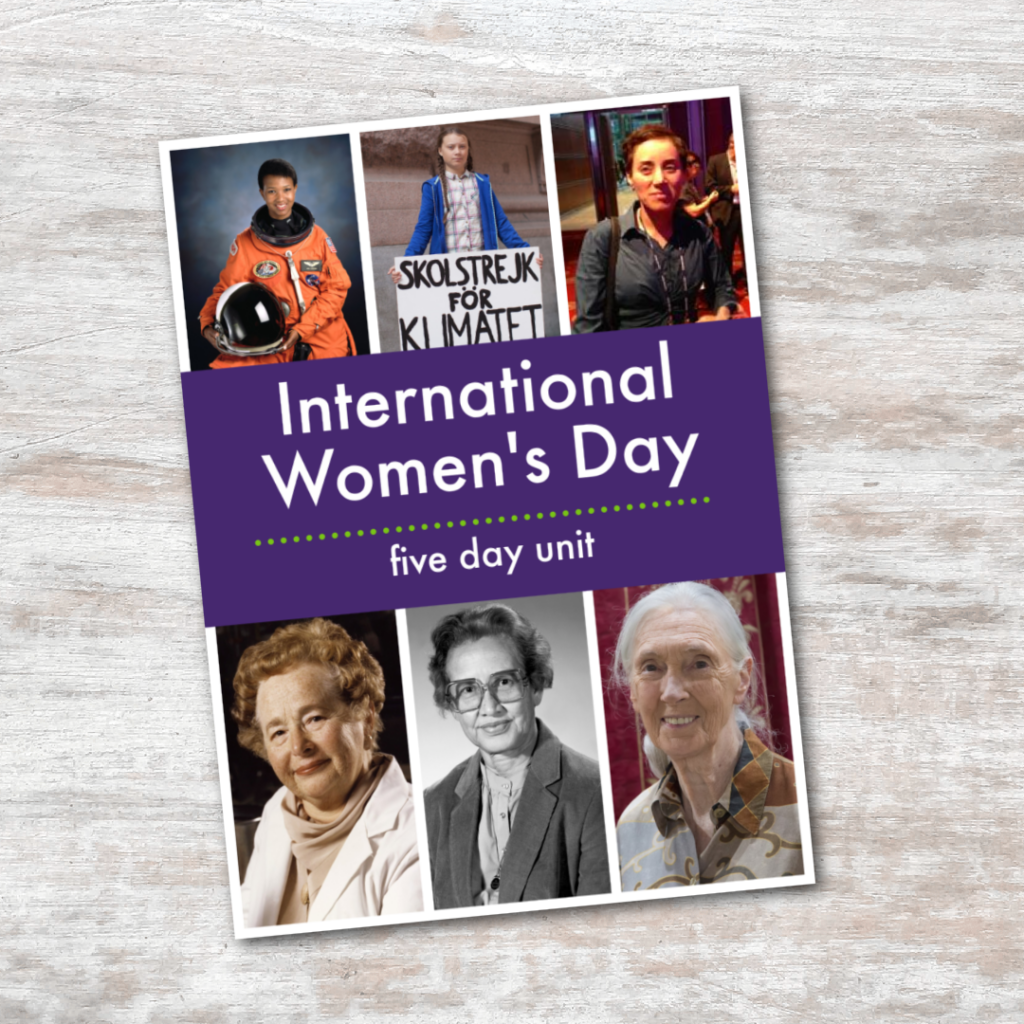
Download your ready-made International Women’s Day Unit
Download your copy of the Play Academy’s ready-made International Women’s Day Unit and you’ll be ready to lead an engaging programme of age-appropriate International Women’s Day lesson plans centred on celebrating women’s achievements, raising awareness against bias, and taking action for equality.
In this International Women’s Day Unit all children can:
:: learn about International Women’s Day: what it is and why it’s important
:: learn about famous women scientists and try a science experiment
:: learn about artist Maria Prymachenko and try an art project
:: interview an inspiring woman they know
:: meet a girl who spoke up and changed the world
:: make their own pledge for change
Bonus International Women’s Day thematic unit printables
The Play Academy’s thematic units come with practical printables that make the lessons more engaging for your children and easier for you to teach.
No need to go searching for printables to accompany your lessons, they’re all included when you download your chosen unit.
In this International Women’s Day Unit you’ll receive these bonus printables:
:: a Who does what job? discussion printable
:: a Who does what thing? discussion printable
:: An Inspiring Woman I Know question cards
:: Pledge posters to customise
How to download this International Women’s Day thematic unit
You can download this unit along with over 50 more from NurtureStore’s Play Academy.
If you are already of the Play Academy, you can download this unit straight away from our Library here.
If you are not yet a member, find out more and choose your first unit here. Your teaching is about to get a whole lot easier!


